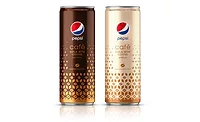American Beverage Association marks 100th anniversary with eyes on the future
Association addressing sustainability, truck driver shortage with next initiatives

Founded in 1919 as the American Bottlers of Carbonated Beverages, the American Beverage Association (ABA), Washington, D.C., has represented the non-alcoholic beverage market through a collection of transformative changes. As the trade association celebrated a century of refreshment, it welcomed a network of beverage industry executive leaders for its Centennial Advocacy Summit, which took place Oct. 28-30 in Washington, D.C.
The event featured speakers from major beverage manufacturers, including PepsiCo Inc., Keurig Dr Pepper and The Coca-Cola Co., where they reflected on the industry’s innovative and proactive efforts leading up to the 100 years as well as what they predict the future will look like for the market and their operations.
Leading up to the event, Katherine Lugar, president and chief executive officer of the ABA, expressed her enthusiasm about the prospect of having so many stakeholders together and the discussions it will spark.
“We think it’s going to be a really exciting opportunity, a great moment not only for the industry but also our stakeholders and partners here in Washington, D.C., to hear from our industry’s great leaders on the ways that they continue to foster innovation, to lead on meaningful solutions,” she says. “… As we look forward to the next 100 years, they’re going to be able to hear firsthand what’s on the frontier in terms of a range of issues, from environmental sustainability and packaging, to beverage choices, innovation, workforce development and supporting our communities. We think it’s going to be a terrific conversation, and [an] enlightening one too.”
An opportunity that will allow the industry to reflect on some of its landmark legislation and initiatives, the Centennial Advocacy Summit will underscore the incredible leadership and engagement of the ABA Board, its officers, and membership body that have contributed to the ABA’s success over the past century, Lugar explains.
The event also will allow the ABA to engage with its members and thank them for their continued support as it continues to represent the future efforts of the non-alcoholic beverage market. Lugar highlighted that the ABA values and needs their engagement because relationships matter - and their voice matters.
“We need their support in driving our industry narrative, sharing our story of great-paying jobs, of workforce development, of innovation and of community,” she says. “Those stories are enormously powerful and when you can localize and personalize what this industry is all about, it’s even more so. We welcome, and we want and we need their engagement, now and into the future.”
Power of alignment
No stranger to the efforts of leading a trade association, Lugar’s tenure with the ABA is roughly just shy of one year. Although she might be relatively new in her role with the ABA, Lugar noticed early on that the strength of the ABA stems from its ability to bring competitors together to spark meaningful change.
“The power and value is in our member companies, often fierce competitors, who are willing to work together to provide real solutions to many of society’s challenges,” she says. “It’s been through that collaboration and alignment that so many powerful and proactive solutions have been developed and successfully implemented.”
Another strength that Lugar admires about the ABA and its members are the strong ties to local communities. “I think beverage companies are really unique in their incredible commitment to building strong communities, to their local roots, and it’s especially powerful in a time where across the country, there’s growing distrust of institutions,” she says. “When you have those local ties, when you are able to be completely connected to your local community, it gives you an ability to bring that visibility and those relationships to all that you do.”
These aspects all played a role in the accomplishments that the ABA has achieved throughout its 100 years, including its more recent ones.
“If you look even more specifically in the last few decades, I’m going to tick through a number of important victories,” Lugar explains. “Fundamental to all of them is that we have taken real learnings from moms who want us to be part of the solution to various challenges, such as having more control over what their young children and teens eat and drink in school. We listened. And through the power of three, ABA worked closely with Coke, Dr Pepper and Pepsi to drive really meaningful initiatives to support moms - like our national School Beverage Guidelines, Clear on Calories front-of-pack labeling, and most recently, Balance Calories, where we announced our most ambitious effort in 2014 at the Clinton Global Initiative meeting in New York.
“Now we’re taking that same approach of leaning in to embrace bold solutions to some other challenges,” she continues. “We’ll be doing the same, building on our long heritage of work to foster environmental sustainability; to advance new solutions around plastics and how we can work across industries to drive sustainable solutions in the plastic space.”
Yet, the ABA’s efforts have not been reserved to proactive measures alone. It also has needed to go on the defensive as local municipalities have turned to sweetened beverage taxes in recent years. In fact, in the past 10 years, the ABA has defeated 150 tax proposals, which resulted in avoiding more than $52 billion in taxes and costs to the industry, Lugar explains.
Lugar adds that consumers have expressed frustration over these types of taxes and in some cases that has resulted in a reversal.
“The return on investment in advancing better solutions and defeating these taxes has had a tremendous impact throughout the industry,” she says. “Of course we don’t do it alone — we always do it along with our state advocacy organizations, our member companies and so many other important partners and stakeholders that are critical to that success.”
“Quite simply, people want choice, they do not want taxes put on items in their grocery cart,” she explains. “Speaking from personal experience, moms want to call the shots about what’s in their grocery cart. They don’t want government to do it for them. We certainly saw this in Cook County, Ill., when the people there rose up against the beverage tax and demanded that the County Board repeal it, which it did shortly after enacting it. We know that there’s a better way to help people reduce the amount of sugar that they get from their beverages than taxes that raise prices on working families and hurt small businesses and their employees.
“It’s important to note that these taxes are not getting traction right now,” Lugar continues. “Our members are creating more beverages with reduced sugar and zero sugar and providing them in smaller packages, and I think it’s important to point out that these are actions that are meaningful and sustainable. They have real impact, unlike highly regressive and discriminatory beverage taxes, which are a non-starter.”
An industry of solution providers
Through a bevy of choice solutions, the beverage industry is empowering consumers to make the beverage choices that are right for them.
“Fundamentally, choice and innovation are bedrocks of this industry,” Lugar says. “They’re critical to all that we do, and so we are meeting consumer demand for a wide range of beverage options in more flavors, and calorie ranges and package sizes, some with sugar, some with a little sugar and some with no sugar at all. It’s important I think to underscore that 50 percent of beverages purchased today are zero calorie.
“But I think it’s also important to note that we empower consumers through bringing them their favorite beverages in environmentally-friendly packaging, whether it is aluminum or PET,” she continues. “These packaging options are highly valuable and it’s important to underscore that these are completely recyclable. At the end of the day, we’re an industry that provides choice through innovation, and our advocacy is built around protecting that choice in a way that’s responsible to both our consumers and our communities.”
Indeed, sustainable packaging solutions have been an integral part of the ABA’s history. “ABA and many of our member companies have a strong track record of driving and innovating in the environmental and sustainable packaging space,” Lugar explains. “Some of our member companies were among the founders of Keep America Beautiful. They, along with ABA, have supported recycling programs and infrastructure in communities from coast to coast.”
Although the beverage industry has been an early supporter of recycling efforts for packaging, it has not been without its challenges. As Lugar notes, recycling can be confusing to U.S. consumers, contributing to a fragmented system with some relatively low recycling rates. However, the ABA is looking to be a solution provider as this issue takes center stage.
“As an industry, we want to continue to collaborate to solve those problems in the areas where we can solve them,” she says. “We’re only one small part, but we take that part seriously.”
In the coming months, the ABA will announce how it will help to better foster recycling efforts through education and messaging that highlights the full recyclability of its plastic bottles, and pinpoint ways to improve the U.S. recycling infrastructure, Lugar explains.
“We want to be constructive participants in all of the sustainability discussions — focused on workable, impactful solutions,” she says. “Sustainability, particularly recycling of containers … is very impactful because it is so localized. In fact, by the time this article publishes, we will have announced a new plastic initiative called Every Bottle Back, but we’re also looking at broader policy solutions that would help create a more effective, efficient and fair system. These efforts are ongoing and we’re hoping to work with the broader consumer goods industry on solutions that best serve consumers and our environment while being fair to business.”
Yet, recycling education and awareness is just one of the ways that the ABA and the beverage industry is tackling sustainable packaging. The association also is addressing the accessibility of sustainable material sources like aluminum.
“Aluminum prices are high due to tariffs and additional market distortion and what this all really comes down to is a need for transparency,” Lugar says. “I think when we look at aluminum, we know that there’s not one silver bullet solution so we’re engaging in a multi-pronged approach for the entire beverage sector - from filing comments for tariff exemptions to working with policymakers in the Administration to bring about greater transparency. It’s important as an industry that we advance the right policy solutions both in terms of aluminum and in terms of plastics.”
Taxes and sustainability are not the only issues impacting the beverage market. Like many other industries, beverage manufacturers and distributors have struggled with maintaining a strong truck driver labor force.
“There’s no question that the labor shortage is an acute one when it comes to drivers,” Lugar says. “The drivers are aging out of the workforce and over the next decade, it is estimated that the country will need an additional 890,000 drivers, so this is an enormous issue. And our industry is unique in that our truck drivers are ambassadors for our industry; they are often the face people see placing our beverages on shelves.”
To help address this crisis, the ABA is among the industries supporting the DRIVE Safe Act, which would create a path for 18-, 19- and 20-year-olds to drive interstate, as well as updates to the Hours of Service rules proposed by the Federal Motor Carriers Safety Association. Although the solution for the truck driver shortage still is in development, it remains a priority for the ABA.
“This is an area that I am hearing about loudly and clearly, and we are deeply committed to finding solutions for this industry,” Lugar says.
As Lugar looks to lead the beverage industry into its next initiatives and challenges, she highlights that the ABA’s successes and accomplishments were achieved because of its strong leaders of years past.
“The ABA Board has the best and the brightest leaders in our industry, and facilitating those tables to be able to have a productive dialogue, to listen to a range of voices with different perspectives and then to take all of that information and synthesize it to get to the right landing spot is absolutely key to our success,” Lugar says. “The power of these fierce global competitors and how they can consistently come together to forge game-changing solutions to tough societal challenges is truly impressive. I have to say, they get one initiative done and it’s executed and they’re already moving on to the next challenge - and always together in the places where they can be. For ABA, our focus going forward will continue to be driving constructive solutions that best meet the needs of the future. That is going to be fundamentally key to our success.” BI
Looking for a reprint of this article?
From high-res PDFs to custom plaques, order your copy today!





